Even the greatest musical acts have an album or two that are underappreciated for various reasons. Yet, to their fans, those albums are something special. Here are 20 albums from legendary bands that might not get the credit they deserve.
Listed in chronological order.
“Magical Mystery Tour” (1967), the Beatles
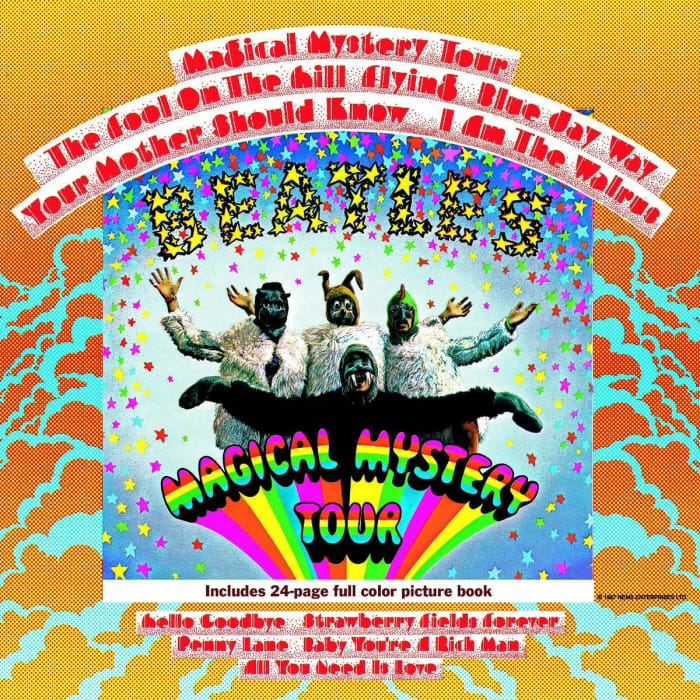
Is this really Sgt. Peppers? Part II or Sgt. Peppers, lite? There are certainly Beatles critics and fans who believe that’s the case. Yes, the musical and lyrical experimentation continued by the band, as songs like “I Am the Walrus” and “Blue Jay Way” prove. Though, the album has the teeth to more than stand on its own. The title cut is one of the Beatles’ most recognizable songs, while others like “Your Mother Should Know” and “The Fool on the Hill” two of the band’s best deep cuts.
“Morrison Hotel” (1970), the Doors
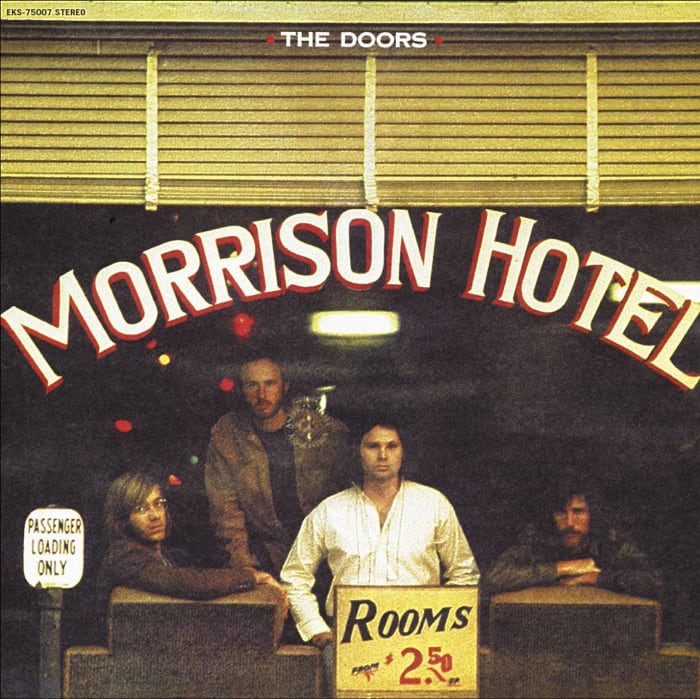
While some critics are still divided on whether 1969’s The Soft Parade is the best or worst Doors album, it did spawn classic rock staples like “Touch Me,” “Tell All the People” and the underrated title cut. On Morrison Hotel, the band ditched the strings from the previous record and returned to its blues-rock roots. From the opening second of the album with “Roadhouse Blues,” that’s obvious. “Peace Frog,” meanwhile, is one of the band’s more underappreciated moments.
“Goats Head Soup” (1973), Rolling Stones

Sandwiched between the legendary Exile on Main St. and the transitional “It’s Only Rock ‘n Roll,” the Stones’ 13th studio album tends to draw the “solid” moniker, while subpar praise upon release. It’s actually quite better than that. Back-to-back hits “Doo Doo Doo Doo Doo (Heartbreaker)” and “Angie” close out Side One, while closer “Star Star” is a fine way to end an album that actually went to No. 1 in the U.S. and United Kingdom.
“Sabotage” (1975), Black Sabbath

Considering Ozzy Osbourne and Co. were being sued by their former management, the results of Sabbath’s sixth studio album are pretty impressive. To the casual classic rock fan, the songs might not be all that memorable. Yet, “Symptom of the Universe” had a huge influence on the thrash metal genre, while “Megalomania” is more than 9 1/2 minutes of an almost prog-rock trip with some of Tony Iommi’s most unheralded guitar work. Listeners can feel the band’s collective aggression from start to finish.
“In Through The Out Door” (1979), Led Zeppelin

Zeppelin’s eighth and final studio album doesn’t always get the credit it deserves, especially when compared to the early greatness of the group. Perhaps also because the rock climate was changing with punk, disco, and new wave becoming more mainstream. Still, this record proved that Led Zeppelin was good to the last drop. Beginning with the haunting “In the Evening,” In Through the Out Door reached No. 1 on the Billboard chart. Other classics from the record include the good-time romp “Fool in the Rain” and ballad “All of My Love,” complete with John Paul Jones’ memorable synthesizer solo.
“Tusk” (1979), Fleetwood Mac

Following up the ridiculously successful Rumours (1977) was certainly a chore. But instead of playing it safe and following the same formula as that previous smash album, Fleetwood Mac opted to do some musical experimentation. At least Lindsey Buckingham did, offering a more post-punk approach. There’s the title track that featured the USC marching band lending a collective hand. The complex “Sara” is Stevie Nicks’ most notable contribution to the double album that peaked at No. 4 on the U.S. Billboard 200.
“Duke” (1980), Genesis

This was a bridge album, in a sense, that connected Genesis’ traditional progressive rock (“Duchess,” “Duke’s Travels”) past with a future that would trend toward the more pop and mainstream radio rock (“Misunderstanding,” “Turn It On Again”) that made the band international superstars down the road. Duke was actually the first Genesis album that reached No. 1 in the United Kingdom while topping out at No. 11 on the U.S. Billboard chart.
“Women and Children First” (1980), Van Halen

Trying to follow up the stellar 1-2 punch of Van Halen and Van Halen II is no easy task. Women and Children First was a top-10 album for the band, but only spawned one single — “And The Cradle Will Rock…” However, “Everybody Wants Some” and “Romeo Delight” also help make up one of the better Side Ones within the Van Halen catalog. With the blistering Fair Warning and campy cover-fueled Diver Down albums to before the group became one of the biggest bands in the world through 1984, that three-record stretch from 1980-’82 tends to get forgotten in classic rock circles.
“Face Dances” (1981), The Who

After Keith Moon’s death in 1978, various factions of Who fans wondered if it was worth sticking with the band. That would have been wrong since the early ’80s work of The Who has its place within the band’s exceptional legacy. The better of the two ’80s studio releases is Face Dances, a top-5 album in the U.S., Canada, and the U.K. “Better You Bet” and “Another Tricky Day” are the highlights of a record — from start to finish — that’s time well spent.
“Fables of the Reconstruction” (1985), R.E.M.

R.E.M. was on the rise following the releases of Murmur and Reckoning, then it decided to do some experiments with this conceptual third studio album. It’s an ode to the gothic South, with “Driver 8” as the undisputed highlight of the record. Though, the intentionally misspelled “Can’t Get There from Here,” “Wendell Gee” and “Maps and Legends” all make it feel like an authentic musical journey.
“Tunnel of Love,” (1987), Bruce Springsteen

Tunnel of Love won a Grammy Award in the category of Best Rock Vocal Performance, Solo. Yet, as the studio follow-up to Born in the U.S.A. and before the questionable twofer of Human Touch and Lucky Town, this album is almost forgotten within the confines of The Boss’ catalog. It’s a shame because even though Bruce sounds jaded and worn, it’s some of his most compelling songwriting. “Brilliant Disguise” is a beautifully haunting track, while “Tougher Than the Rest” and “One Step Up” are two of Springsteen’s strongest deep cuts.
“Seventh Son of a Seventh Son” (1988), Iron Maiden
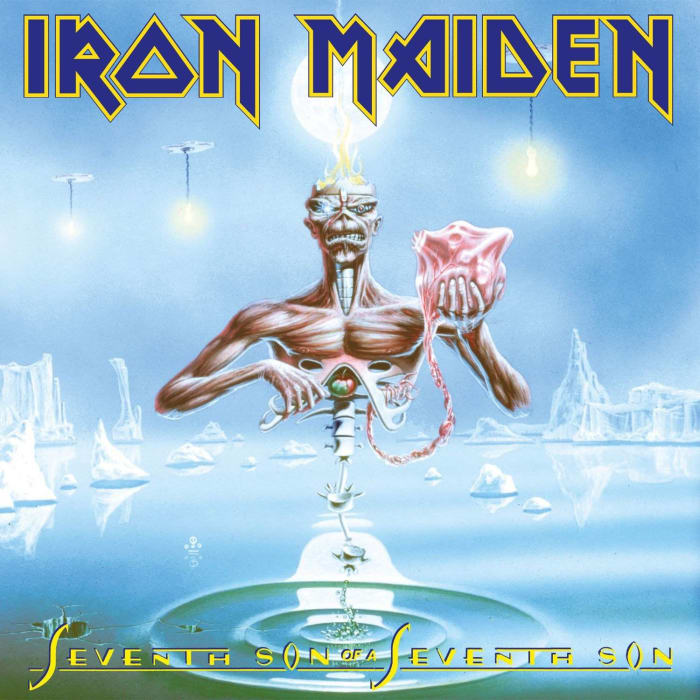
Inspired by the novel the Seventh Son, this concept album was Maiden’s last released in the 1980s. It was another No. 1 for the band, but some critics found the overall project a bit presumptuous, thus it can be brushed off when talking about the band’s stellar five-record run from 1982-’88. That said, some of Maiden’s most complex and intricate lyrics can be found here. “Can I Play with Madness” has the commercial appeal while “The Evil That Men Do” and “The Clairvoyant” have grown to become live staples.
“..And Justice for All” (1988), Metallica

How can an album that was certified 8-times platinum be considered underrated? Because there is too much attention paid to “One,” the track that made Metallica a mainstream commodity. There’s no doubt, one of the band’s most popular songs is worth the hype, but there’s more to this record. Sure, it’s long and the bass was essentially non-existent. But, the epic title track, relentless opener “Blackened” and heart-pounding live favorite “Harvester of Sorrow” can more than hold their own with just about any other Metallica hit.
“Bleach” (1989), Nirvana
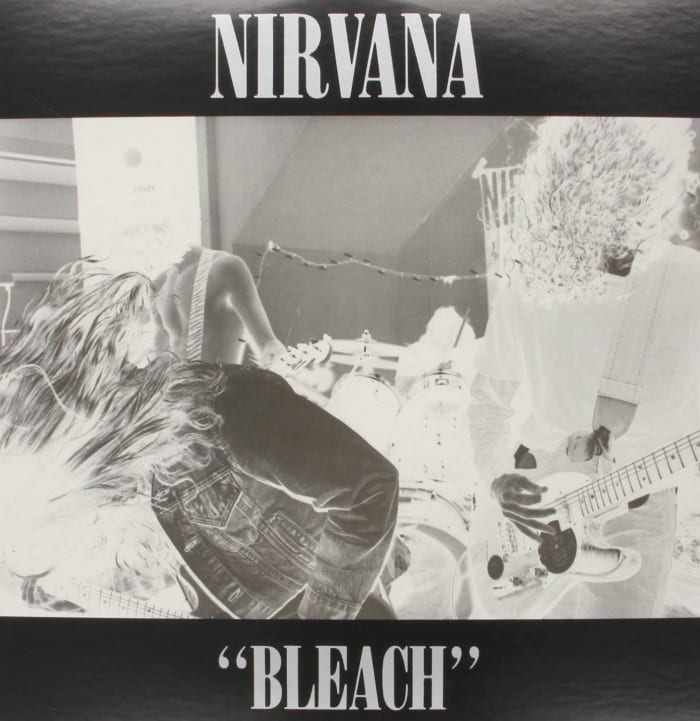
The massive success of Nirvana’s breakthrough second album Nevermind brought renewed attention to the band’s critically acclaimed debut from the late 1980s. More raw and dirty than polished products like Nevermind and In Utero, but it’s no doubt grunge to the core. Songs like “Blew,” “Love Buzz,” “Negative Creep” and “About a Girl,” which enjoyed some mainstream success via the band’s MTV Unplugged appearance, should all be celebrated along with Nirvana’s more well-known tunes.
“Mother’s Milk” (1989), Red Hot Chili Peppers
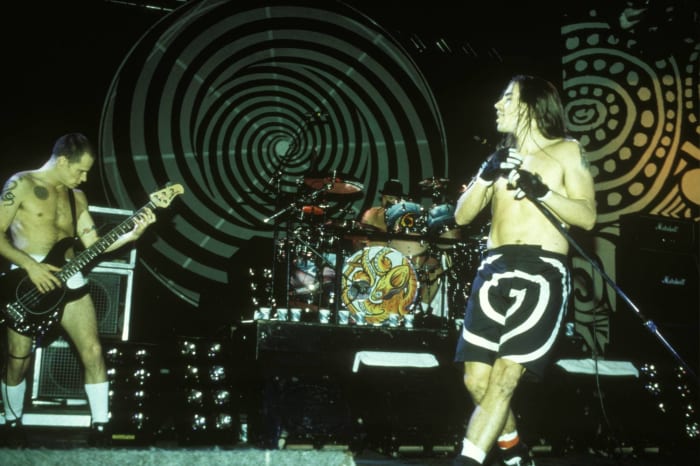
For as many eventual classics Mother’s Milk produced, “Higher Ground,” “Knock Me Down,” “Taste the Pain,” “Subway to Venus” and “Stone Cold Bush,” the album was initially panned for a lack of overall substance. With the additions of John Frusciante on guitar and Chad Smith behind the drum kit, the band still enjoyed its first true commercial success with this album. Critics didn’t show it the same level of love as 1987’s The Uplift Mȯfo Party Plan, which fused the Chili Peppers’ signature funk rock with more reggae and some metal. Yet. Mother’s Milk opened the door for the massive international success the band soon achieve.
“Check Your Head” (1992) Beastie Boys

The Beasties Boys maturation as musicians can be traced back to this, their third studio album. License to Ill was a smashing introduction, Paul’s Boutique proved they had staying power, and Check Your Head showed how versatile entertainers Adam Yauch, Adam Horovitz, and Mike Diamond actually were. “Pass the Mic” and “So What’cha Want” are pure Beastie Boys of the time, while “Gratitude” features some killer bass work, and “Jimmy James” is a trippy experience with an old-school feel.
“Zooropa” (1993), U2

U2’s six-year stretch of albums, Achtung Baby (1991), Zooropa (1993), and Pop (1997), were all a departure from the 1980s, new wave/alternative/straightforward rock that brought the band international stardom. Achtung Baby grew on enough fans to keep the U2 machine churning while Pop turned heads — and not necessarily a good way. In between is Zooropa, a Grammy Award winner that didn’t have any major hits, though “Numb” and “Lemon” are as unheralded as the album itself. But it just might be the band’s best true alternative effort.
“Vapor Trails,” (2002), Rush

The fact that Vapor Trails was made and Rush still existed in the early 2000s was truly remarkable. Considering late drummer and main lyricist Neil Peart was dealing with the deaths of daughter Selena in 1997 and wife Jackie one year later. However, Peart pressed on, and Rush released its first studio album in six years. It was a top-10 album in the U.S. and did not include any keyboards or synthesizers. Highlights include the title track, “Out of the Cradle,” “One Little Victory” and “Secret Touch.”
“How You Sell Soul to a Soulless People Who Sold Their Soul?” (2007), Public Enemy
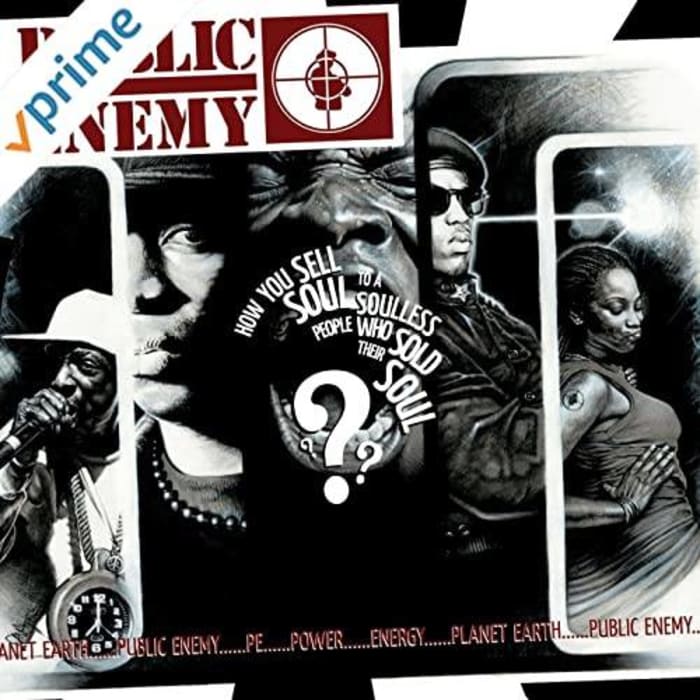
Critics and fans of PE consider this record almost a rebirth of sorts. The legendary rap outfit put out four albums from 1994-2005, and none really moved the meter like the group’s first four releases. With this 2007 effort, Public Enemy seemed more determined to harken back to its early success without trying to do too much. “Harder Than You Think” was almost a tribute to its past while “Back in Black” is a spirited rock number that also channels one’s inner Run-DMC.
“Lightning Bolt” (2013), Pearl Jam
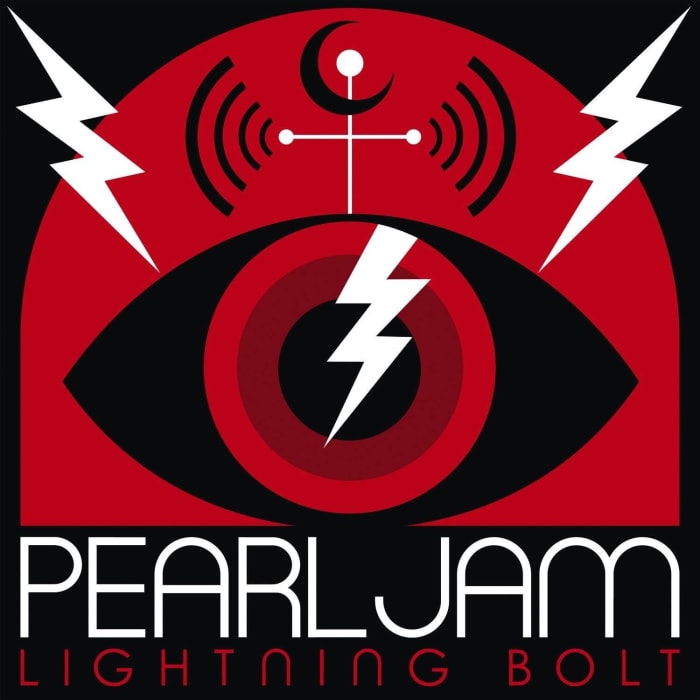
Pearl Jam’s 10th studio release was another Billboard album for the band. And, when we dig deep into the overall catalog, it’s filled with tracks that have since become staples of the group’s celebrated live shows while maybe not be praised on an individual basis. Still, the title track has become a high-energy live favorite, while “Pendulum” and “Mind Your Manners” grew on the ears in quick fashion. The underrated gem of the record, though, is the Pink Floyd-esque “Sirens.”
